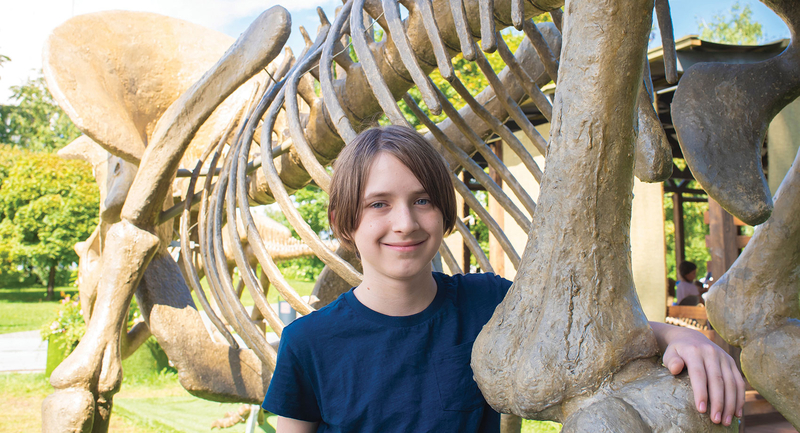"The future of classroom instruction is here, a little sooner than many of us expected," English teacher Matthew Kay writes in his column in this issue. To thrive in this brave new world, he speculates, educators will need one capability above all others: "We will have to be able to lead students in meaningful classroom discourse about big ideas." Kay is responding to the emergence of ChatGPT, the new artificial intelligence-driven language model that is able to generate customized content at the press of a return key. For Kay, as for many other observers, this new technology raises a host of questions about educators'—and schools'—role. If students are able to "farm out" written assignments—and basic knowledge-gathering tasks in general—to "their personal AI secretaries," for example, what does this mean for how teachers conceive of lessons and assignments?
For Kay, it means focusing more on the social and analytical aspects of learning—on fostering moments of collective meaning-making and using inquiry to help students expose gaps in their thinking and build deeper understanding. In an age of increasingly automated and virtual interactions, he writes, "Our classrooms must be places students both talk to humans and are listened to by humans." They must also be places where students gain the critical thinking skills they need to use technology constructively and strategically, rather than as passive consumers.
The idea for focusing this issue of EL on discussion and thinking skills originated well before ChatGPT hit the internet in late 2022. But the themes Kay touches on run throughout the issue, often in varying contexts. We live in a time of not only seismic technological advances but also stark ideological divides, social media-driven discourse, and ongoing disruption and reinvention in the wake of the pandemic. In this climate, as our contributors stress, schools can play an important role by fostering young people's capacities for constructive dialogue and critical thinking. Indeed, this may be education's true calling today.
Here are some key takeaways on how to engage in this work:
Argue better. As Erik Palmer notes, many students have only a superficial grasp of what "argument" means in the intellectual sense. By teaching them the elements of effective argumentation, educators can help students engage in more nuanced discourse and thinking. In addition, as Richard Weissbourd and colleagues point out, developing discussion norms and "literacies" can help students better navigate challenging or divisive issues. Go beneath the surface. According to Jim Heal and Bryan Goodwin, "effortful" thinking is less common in classrooms than we might think. Educators must use explicit strategies—such as providing high-level processing prompts, engaging in think-aloud exercises, and altering problem scenarios—to help students dig deeper into content. In writing, says high school teacher Mike Miller, they can encourage students to focus their arguments more closely to avoid skimming the surface in typical "five-paragraph" style. Lift student voices. Several articles highlight the importance of creating greater space for student voice and inquiry in learning. "Conversations, especially about academic content, are a natural way for students to practice critical thinking," writes 3rd grade teacher Jennifer Orr. Rather than passing over them, educators can orient their instruction around these interactions to increase engagement and investigative skills. A pedagogy that centers student voice, stresses Shane Safir, develops students' capacities as "knowledge builders." In the age of ChatGPT, those are fundamental matters of equity.
Reflect & Discuss
➛ What do you see as schools' role in helping young people talk across their differences?
➛ What do you do as a teacher or leader to help students with very different views interact respectfully? What more could you do?
➛ How do you connect students' existing knowledge to new lesson material?
➛ Does the idea of focusing on student thinking as opposed to student engagement resonate with you? Why or why not?
➛ Which of the instructional strategies mentioned here have you used? Which might you try to implement?
➛ Do the prompts and questions you use with students meet Orr’s guidelines for encouraging critical thinking?
➛ How do you actively notice and incorporate students’ prior knowledge into your teaching?
➛ Why is it so important for our youngest learners to develop critical thinking skills?
➛ In what ways could you better position students as knowledge builders in your classroom or schools? Why do you think this is important?
➛ Do you agree that a "pedagogy of compliance" continues to prevail in many classrooms? If so, why do you think this is?
➛ What steps could you take to heighten the roles of reflection and revision in your classroom or school?
➛ Do discussions in your class typically follow the pattern Palmer describes at the start of the article, where students basically just state opinions? How might you change that?
➛ What steps could you take to help students formulate better arguments, whether in writing or speech?
➛ Do you agree that people today have become “unaccustomed to thinking deeply” and critically? If so, what problems does this create for students?
➛ Does your school or district's curricula feel too crowded or overloaded? If so, how do you (or your teachers) navigate the pressure to teach a lot in a short timeframe?
➛ Think about a time you sped through a lesson but realized, too late, that students didn’t have a grasp of the basics. What could have been done differently?
➛ Is retrieval practice a regular tool in your teaching toolbox? If not, how might you incorporate a one-minute activity in tomorrow’s lesson?









